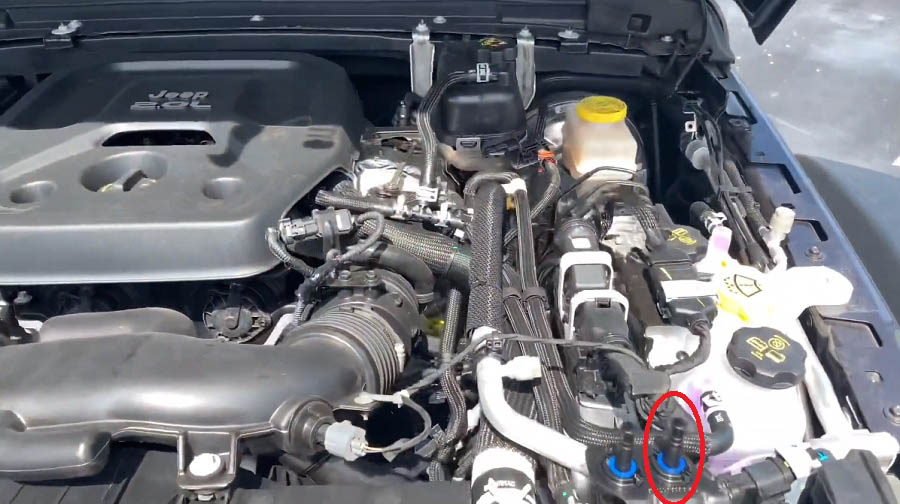Auto Start-Stop is ‘designed’ to save us some gas money, it might save us a few dollars per year, but that’s actually not the goal of the manufacturer. This guide will show you how to disable this annoying feature on Jeep Cherokee, Grand Cherokee and Wrangler & Compass.

The primary purpose of Auto Start-Stop feature is to reduce fleet emissions for the auto manufacturer, not save you gas money. This is why they have devoid us of an option of permanently disabling this function. Fortunately, there is a workaround to this, and does not cost any money, its just a matter of unplugging a wire.
- Locate the main 12V battery.
- Remove the Intelligent Battery Sensor (IBS) plug connected to the negative terminal of the battery.
- The system is no longer able to detect the battery condition and goes into bypass mode, permanently disabling the Auto Start-Stop.
After removing the sensor, you will see an alert “Start/Stop Unavailable, Service Start/Stop” in your instrument cluster screen every time you start your vehicle – but it goes away by itself after a few seconds.
Jeep Cherokee
The IBS sensor is located on the main 12V battery under the hood. Remove the plug from the sensor on the negative pole.

Jeep Wrangler
The method is a little different in Wrangler, pull up the button type sensor that detects closing of the hood and unplug the wire beneath it. Don’t worry, it won’t show you hood open warning in dash, as the button sensor on the left is for that purpose. The one on the right is only linked to Auto Start-Stop.

What is Intelligent battery sensor (IBS) for?
The IBS continuously analyzes the status of conventional 12-volt lead-acid batteries and provides information on parameters such as state of charge (SOC), starting ability (SOF) and aging (SOH) of the battery. The sensor is essential for the reliable operation of vehicle start-stop systems. It can be used on any standard battery. In addition to monitoring the battery, the IBS also helps in the detection of defective electronic vehicle components, since it also monitors the quiescent current. The sensor improves the diagnostic capability of the car and enables warnings of possible breakdowns, even if they are not caused by the battery. With an improved charging strategy, the IBS also extends the battery life by 10 to 20 percent.
Autor: Nabeel K
E-mail: nabeel@wheelsjoint.com
Spojit s
Spojit s
16 Komentáře
většina hlasů
nejnovější nejstarší
Vložené zpětné vazby
Zobrazit všechny komentáře
Harold Buchanan
Před 3 let
Automatic start-stop system also annoys me. I had it coded so that it stays off and I don’t have to push a button every time I start the engine. It is also not healthy for the engine to start off constantly without or with less oil pressure. And it doesn’t save much fuel anyway.
Well, there can be a divided opinion. You will certainly be able to reduce fuel consumption and thus pollutant emissions in the city (according to the manufacturers, between 5-15%), but the components must also be designed for frequent switching on and off and this is of course reflected in the vehicle price and the price of the individual components.
For example, such vehicles run with so-called AGM batteries. This stands for “Absorbent Glass Mat” and means that these are lead-fleece batteries in which a glass-fiber fleece is saturated with the electrolyte (sulfuric acid). So there is no free sulfuric acid inside, which means that the battery can be operated in all positions.
I personally don’t really need this automatic start-stop. When I’m on the road with our company vehicle (Audi A4), it irritates me more and I think that it is rather detrimental to comfort. In my eyes, the wrong place is simply trying to make cars more environmentally friendly and to meet the legal requirements. The auto industry and politics are so hairy on their combustion engines maybe that why the development of electric vehicles is picking up.
















